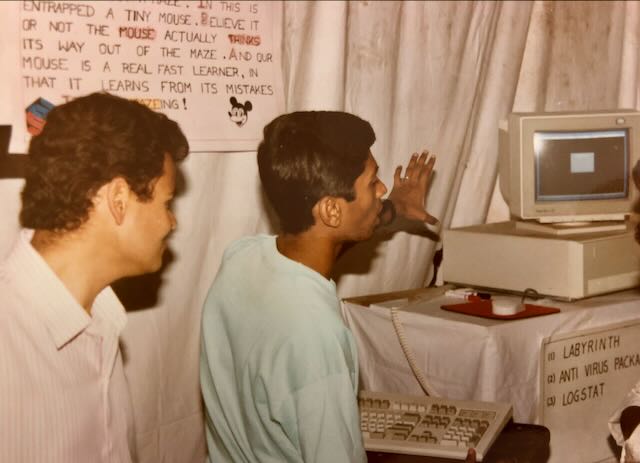I am in the prime of my abilities, but at the same time also becoming wary of the Ageism rampant in my chosen field of software development.
Ageism refers to the stereotypes (how we think), prejudice (how we feel) and discrimination (how we act) towards others or oneself based on age. — WHO
Ageism is a problem that society needs to tackle actively, as when left unchecked, it will undermine effectiveness of our work as a society.
In my opinion, there is also some mental unburdening that older or younger people can do to help themselves counter Ageism better.
Our abilities to learn, act and transmit information during our lifetimes are unparalleled in the living world. A way to model learning is to consider it as an ability to compose causal relationships of observed phenomena. These relationships layer as well, building into a personal web of decision making criteria by “rules”.
As an aside, by contrast, other living organisms learn by association. Ivan Pavlov’s famous salivating dog experiment from 1902 is a demonstration of learning by association.
For the rest of the post, we will assume that the rules model is sufficient to explain our learning abilities.
Rules are not only learned by observing, but also by transmission of “baked” rules through our family, friends, teachers, books, and other media.
Unfortunately, most of these rules lie implicit within our minds, and we are unable to state or explain them well. Decision making with these implicit rules is even celebrated in popular media with the label of “gut reaction”.
These rules sometimes lead into incorrect decision making:
-
The rule is correct even in the face of contradicting evidence. This is often the case when we write off contradicting events or patterns as exceptions. For example, if we have previously learned that a website can be slow intermittently, we can ignore the powerful effects of Tail Latency.
-
The rule is made true with new rules we invent. This is when we complicate our web of learning with extraneous phony rules. This is often seen in academia, where researchers introduce constants and other terms in equations to “fit” the observed data. Conspiracy theories are also another example we can attribute to this tendency.
-
Follow rules made by others we respect to fit in. In my opinion, this is the most common intransigence. Stanford prison experiment is a powerful demonstration. Why the Holocaust was tolerated by so many people is another.
Not all hope is lost
Given the depressing scenario that the rule model of learning paints, what can we do differently?
- For older people, valuable rules and technology we learned may need to be discarded. This is especially true for current rate of change in the information technology field. Our experience in making effective use of technologies is the most valuable asset that we hold. Conversely, younger people in the field should learn from experienced folks on how elaborate systems are scaled, troubleshooted, and systems evolved over time.
- Practice mindfulness to be present in the moment. This helps us improve our existing sense of hearing, reading, and seeing contradictory information dramatically, as it weakens our preexisting judgments.
- Keep a periodic journal of all decisions and outcomes in your life. This helps inform us of implicit, extraneous, or unhelpful rules that we have accumulated.
- Be patient in making decisions. This may be more personal to me, but I feel pressured into making decisions quickly. Unless and until there is a life threatening emergency, almost all other decisions can be made with extra time.
Humanity’s biggest strength lie in our abilities to adapt to different situations, the motivation to explore and make use of our surroundings, and the cooperation to support each other.
